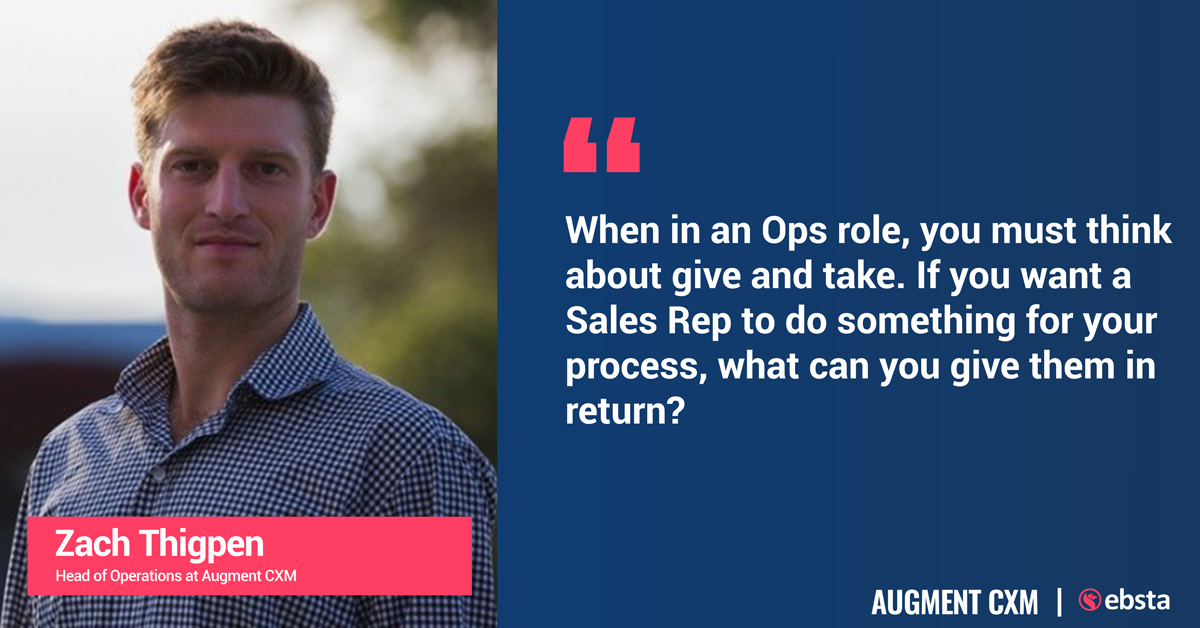Table of Contents
Share this article
Learn from the brightest minds how to predictably and efficiently grow revenue.
Related Content
The Data-Driven Sales Turnaround: 37% Growth in Under 12 Months ft. Shianne Sampson
In this episode of Revenue Insights, host Guy Rubin, CEO of Ebsta, sits down with Shianne Sampson, Global Vice President of Sales at Eventbrite, to explore how data-driven decision making, structured coaching, and intentional leadership can turn underperforming sales teams into high-performing engines of growth. With over 18 years of experience scaling sales organizations at…
Why Top Sales Leaders Get Coaching Wrong – And How an Olympian Fixes It with Matt Hemingway
In this episode of Revenue Insights, host Guy Rubin, CEO of Ebsta, sits down with Matt Hemingway, Vice President of Sales and Operations at Axcient, to explore how disciplined coaching, intentional leadership, and a culture-first mindset drive sustainable sales performance. Drawing on his background as an Olympic silver medalist, Matt shares how the mindset of…
How Top Performers Handle Objections 80% Earlier, with Hervé Timsit from EDB
In this episode of Revenue Insights, host Guy Rubin, CEO of Ebsta, sits down with Hervé Timsit, Chief Revenue Officer at EDB, to explore objection handling and the evolving landscape of enterprise software sales. With over 17 years of experience, Hervé shares insights on leading global sales teams, implementing data-driven strategies, and the critical role…
Head Of Operations: Zach Thigpen of Augment CXM
Zach Thigpen jumped onto Sales Operations Demystified to share his knowledge and experience in Revenue Operations. Check out all the other episodes of Sales Operations Demystified here.
You can learn more about:
Table of Contents
Tools Mentioned:
- Salesforce
- Notion
- SaaS Metrics 2.0 – David Skok
- Scaling The Revenue Engine – Tom Mohr
Key Takeaways
Systems are sensitive to their initial conditions
Systems theory states that “a system is extremely sensitive to its initial conditions”. This is important to understand whilst building out a revenue system for an early stage business – what you do now will have a big impact on how the system runs in the future.
Zach is aware of this and is building out the revenue operations team from the ground up at Augment and is making sure to build the system out in a scalable and efficient way.
Revenue operations can sit without ops or finance, though not sales, marketing or CS
Zach believes that a revenue operations department should sit within finance or operations, though not within sales marketing or customer service as it needs to remain objective. You need to be able to invest resources in a way that is best for the business, not just a specific department: “you can’t play favourites”
Give and take with sales rep relationships
When Zach is looking for the sales team to do something for him (e.g. take on a new process), he always gives something in the same interaction.
Over time, this is training the sales reps to want to interact with the sales operations team, but also maintains a healthy relationship between the two teams.
Understanding pipeline velocity
Zach’s favorite sales metric is pipeline velocity. This essentially is the number of open and new opportunities multiplied by the conversion rate and also multiplied by the average selling price, divided by the average length of the sales cycle.
This tells you how much money how much revenue is moving through your pipeline every day, if multiplied by 365 you will get a pretty good idea of where you are against your revenue target. If things are not looking good then you can go back into the equation to understand which part of it needs to be improved.
Zach used this metric in his last role to identify that the business had a sales cycle issue – they needed to get resp to close deals faster if they were going to hit their annual revenue target.
Two must read sales ops books
Zach highly recommends that any sales ops person reads the follow two books:
- SaaS Metrics 2.0 – David Scok
- Scaling The Revenue Engine – Tom Mohr
Subscribe To Sales Ops Demystified:
Quote:

